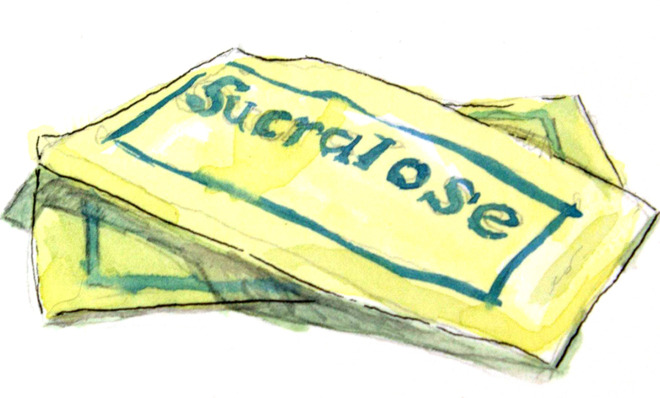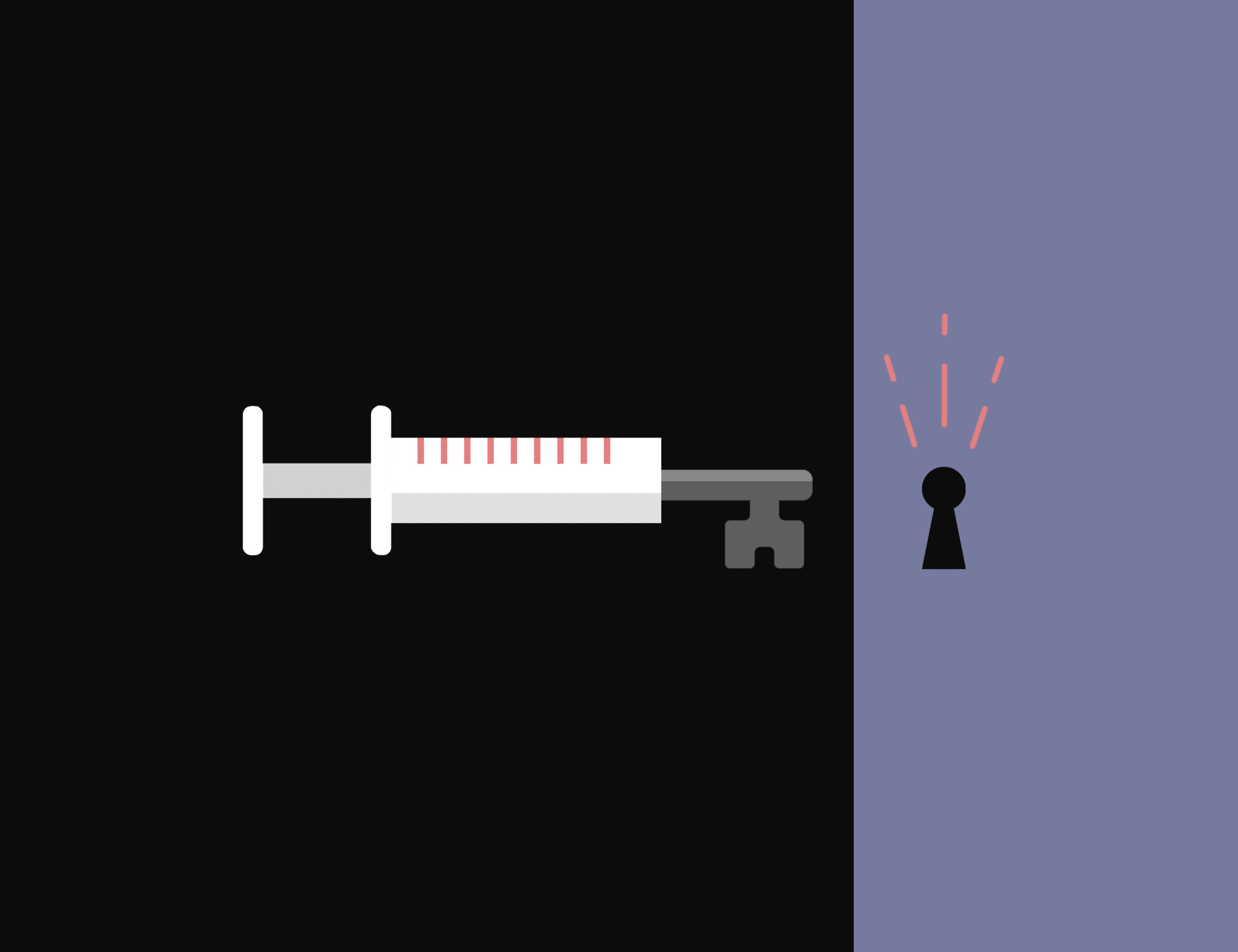Beware of Splenda: The backlash against artificial sugars
Here's what it all means


A free daily email with the biggest news stories of the day – and the best features from TheWeek.com
You are now subscribed
Your newsletter sign-up was successful
As a diet soda addict, I knew this day would come. The day when science showed me the error of my assumptions. The day that my brain's quest for a guilt-free sugar fix would slowly begin to die.
In the latest issue of the journal Nature, scientists report a startling finding. Artificial sweeteners like saccharin (used in the military's field rations), sucralose (Splenda), and aspartame (Diet sodas) changed the microbiome inside mouse intestines so dramatically that they induced hyperglycemia — glucose intolerance — the very syndrome that these fake sugars are marketed to prevent.
The finding helps explain a number of mysteries about artificial sugars. Some studies have shown that people who consume a food or beverage with an artificial sugar as a substitute for a sugared food or beverage lose weight. Others show precisely the opposite. Personal fitness trainers and dieticians, the non-scientists who are on the front line of the weight loss war, are markedly disinclined to recommend diet drinks for their clients, even if they could not point to any physiological reason why. Since these authorities most closely monitor the daily behavior of people trying to lose weight, their anecdotal observations ought to be given at least some credence. Now they are backed up by some good science.
The Week
Escape your echo chamber. Get the facts behind the news, plus analysis from multiple perspectives.

Sign up for The Week's Free Newsletters
From our morning news briefing to a weekly Good News Newsletter, get the best of The Week delivered directly to your inbox.
From our morning news briefing to a weekly Good News Newsletter, get the best of The Week delivered directly to your inbox.
Artificial sugars are mostly processed in the intestines, not the stomach. Scientists have just begun to study the flora of life that assists digestion outside the stomach, and this study is probably one of the most consequential to come out of that field.
To assess the impact of artificial sugars on how the body processes sugars, scientists divided mice into several groups. They were fed the same food, with one exception: some were able to consume raw sugar. Others consumed no sugar. And the third group consumed saccharin at the same rate the first group consumed sugar. Once the mice had consumed about a week's worth of their new diets, the researchers began to assess their data. Almost immediately, they detected glucose intolerance — a higher level of glucose in the blood — among the saccharin-drinking mice, and no glucose tolerance changes at all to the other two groups.
The scientists then performed fecal transplants from the mice who showed effects from consuming artificial sugar. Mice who were the unfortunate recipients of the feces developed the exact same metabolic symptoms even though they themselves did not consume any artificial sweeteners. This establishes that "the metabolic derangements induced by [artificial sugar] consumption are mediated by the intestinal microbiota." That is, the processing of the artificial sugars in the intestines accounted for the entirety of the higher glucose intolerance.
Then the researchers sequenced the genomes of the flora in the mice guts. They found that mice who had drank the artificial sugar diet had higher numbers of genes that code for specific sugar degradation pathways, which ferment sugar-like molecules into fatty acid chains associated with obesity. They identified the bacteria associated with these pathways. And they observed a higher level of "dybiosis" — an alteration of the intestinal biome — among the artificial sugar-consumers than among those who consumed the nutrient-rich water and water-sugar mixes.
A free daily email with the biggest news stories of the day – and the best features from TheWeek.com
There is a correlation between consuming artificial sugars and being overweight or experiencing the cluster of symptoms associated with metabolic syndrome. It has been hard to separate cause and effect because most human studies are conducted on people whose diets (and body bacteria) have already incorporated fake sugars. And, of course, gut bacteria differs; there are more than a dozen biome designs common to humans. The scientists fed a diet high in saccharin to seven people who had not regularly consumed artificial sugars before, and found that four of them exhibited poorer glucose response. Genetic sequencing found significant dybiosis in all of these adults. Their genomes had more bacteria associated with metabolic conditions than they did before the experiment.
What does this all mean?
1. Our gut bacteria matters a lot. Some guts can withstand artificial sugars well and others can't. It stands to reason that, as we learn more about the uniqueness of our own microbiome, those of us who want to lose weight would be well served by diets that are tailored to the way our body and its biomic mini-me processes sugar.
2. Artificial sweeteners are pervasive and some people still can lose weight and enhance their health while consuming them. But since we now know that, on balance, they seem to be more bad than good, moderating how much we consume might be smart, too.
3. The study suggests that if people replace artificial sugars with real sugars or cut it out, their biomes could change in a way that contributes to the restoration of normal glucose tolerance over time, all other things being equal.
Marc Ambinder is TheWeek.com's editor-at-large. He is the author, with D.B. Grady, of The Command and Deep State: Inside the Government Secrecy Industry. Marc is also a contributing editor for The Atlantic and GQ. Formerly, he served as White House correspondent for National Journal, chief political consultant for CBS News, and politics editor at The Atlantic. Marc is a 2001 graduate of Harvard. He is married to Michael Park, a corporate strategy consultant, and lives in Los Angeles.
-
 American universities are losing ground to their foreign counterparts
American universities are losing ground to their foreign counterpartsThe Explainer While Harvard is still near the top, other colleges have slipped
-
 How to navigate dating apps to find ‘the one’
How to navigate dating apps to find ‘the one’The Week Recommends Put an end to endless swiping and make real romantic connections
-
 Elon Musk’s pivot from Mars to the moon
Elon Musk’s pivot from Mars to the moonIn the Spotlight SpaceX shifts focus with IPO approaching
-
 Are zoos ethical?
Are zoos ethical?The Explainer Examining the pros and cons of supporting these controversial institutions
-
 Will COVID-19 wind up saving lives?
Will COVID-19 wind up saving lives?The Explainer By spurring vaccine development, the pandemic is one crisis that hasn’t gone to waste
-
 Coronavirus vaccine guide: Everything you need to know so far
Coronavirus vaccine guide: Everything you need to know so farThe Explainer Effectiveness, doses, variants, and methods — explained
-
 The climate refugees are here. They're Americans.
The climate refugees are here. They're Americans.The Explainer Wildfires are forcing people from their homes in droves. Where will they go now?
-
 Coronavirus' looming psychological crisis
Coronavirus' looming psychological crisisThe Explainer On the coming epidemic of despair
-
 The growing crisis in cosmology
The growing crisis in cosmologyThe Explainer Unexplained discrepancies are appearing in measurements of how rapidly the universe is expanding
-
 What if the car of the future isn't a car at all?
What if the car of the future isn't a car at all?The Explainer The many problems with GM's Cruise autonomous vehicle announcement
-
 The threat of killer asteroids
The threat of killer asteroidsThe Explainer Everything you need to know about asteroids hitting Earth and wiping out humanity
